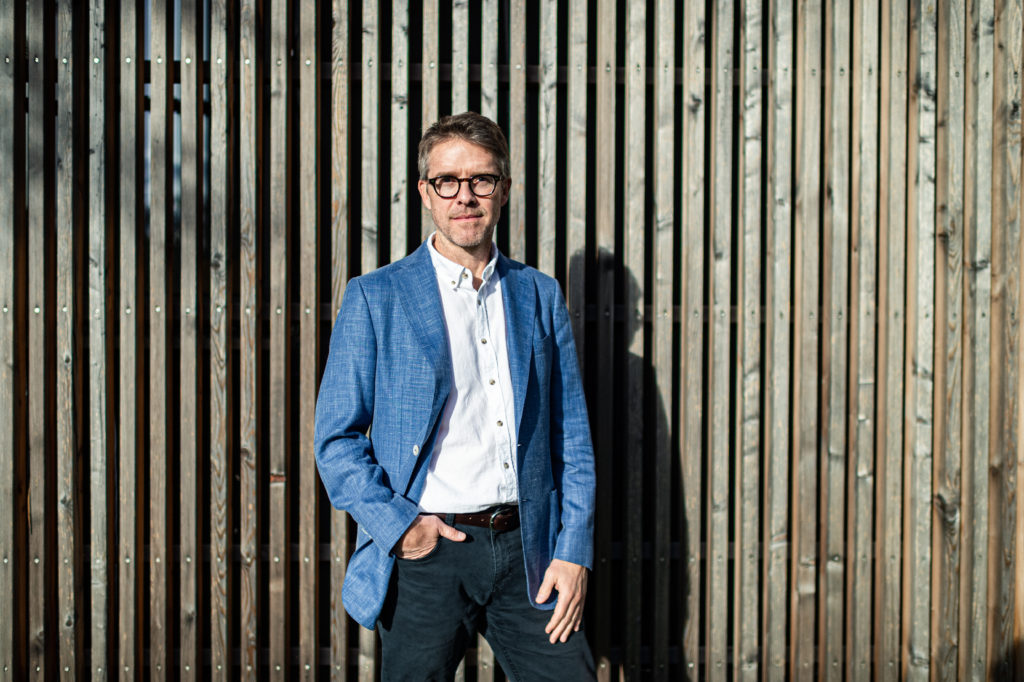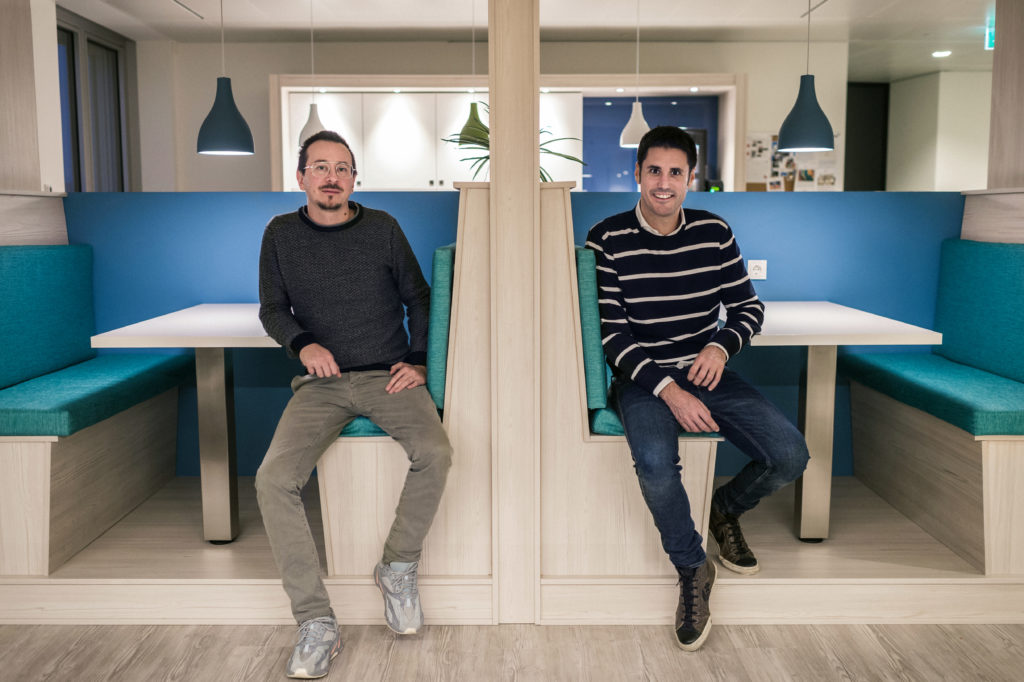LEO caught up with two European payments institutions who chose to secure their e-money licence to operate in Luxembourg, ahead of Britain’s departure from the European union.
Satispay, the Italian-born payment network, received authorisation from the Luxembourg regulator to operate as an electronic money institution (EMI) in march 2019, and PPRO, the London-based cross-border payment specialist, was officially granted its licence a month later. Both companies are at an exciting juncture in their growth trajectory, shifting quickly from start-up to growth maturity status. They discuss the factors which brought them to Luxembourg and why this proved to be not only a strategic, but also a culturally enriching move…
KNOCKING ON OPEN DOORS
Samuele Pinta, Co-Founder and COO and Clemente Sardi, General Manager of Statispay Europe SA, greet us from their pristine and sunlit Kirchberg office where the atmosphere is palpably upbeat. It has been almost 6 months since they ‘graduated’ from their residency at the LHoFT, Luxembourg’s dedicated Fintech platform.
Sardi explains: “the fact that we left the LHoFT after almost a year (September 2018-July 2019), proves that it is doing exactly what it is supposed to do: be a launchpad to Fintech start-ups arriving in Luxembourg.With them we experienced what it is to be a part of a great Fintech ecosystem. They were very supportive throughout our licence application process, providing us with every resource, including contacts which helped us to build the right network and a sense of community. Without them it would have been much harder to navigate this ever-evolving Luxembourgish Fintech ecosystem.” He notes that the other LHoFT residents were ultimately sharing the same experience and this was crucial to be able to exchange views on how to work with the same regulator, “we really value the open-minded vibe at the LHoFT and are now very happy to share our experience of it with others”.
Jack Ehlers, Director for Payment Networks, Product Management and Business Development at PPRO SA, who has overseen the licensing operation at what is one of the fastest growing Fintech businesses in Europe, echoes these sentiments from the leafy Parc Merl neighbourhood, where his thriving team is based: “there is an unequivocal open-door policy where you can talk about your projects and receive good advice. I have always felt that kind of access here.”
Both payments companies highlighted that the Finance Ministry, the Commis- sion de Surveillance du Secteur Financier (CSSF), Luxembourg for Finance (LFF), LuxInnovation, and the Luxembourg Bankers’ Association (ABBL) quickly formed part of their new network, supporting their efforts from different vantage points during what was a crucial process. Sardi recalls: “everyone wanted us onboard and took us very seriously. When you are young, this respect isn’t always a given.”

Jack Ehlers

There is an unequivocal opendoor policy where you can talk about your projects and receive good advice. I have always felt that kind of access here.
BREXIT: A SPRINGBOARD TO STABILITY
The Brexit referendum of 2016 put both companies in a difficult situation.
Pinta explains: “We lost months of work due to Brexit.”The Italian company had in fact conducted a European benchmarking exercise back in 2014, where they identified Luxembourg, Ireland and the UK as the best places to secure a licence. “In the end, we opted for the UK, mainly because there were already over a hundred payment/e-money institutions in existence and we thought that the environment would be a perfect fit for players like us.”
Pinta elaborates “when in 2016 Brexit became a reality, we decided to wait and observe how things would unfold; taking advantage of the momentum we had gained by that stage. But by 2018 nothing was really progressing on the Brexit front, and the uncertainty was becoming an issue. We decided to move with the objective of protecting our users from any possible inconvenience derived from Brexit, particularly a no-deal scenario. Additionally, Luxembourg has a strategic geographical position and represents a door to other markets, which was extremely interesting to our international growth plans.”
At this juncture, the management team revisited their initial benchmarking document. Pinta pauses and smiles, “we realised that Luxembourg had been the only real choice from the beginning. […] Nowadays AAA status and political stability are critical factors.” Satispay incorporated in Luxembourg and filed for its application on the 25th and 26th of October respectively, and by the 12th April 2019 they were able to migrate the company from London. Sardi tells us with pride that Satispay was one of the fastest recipients of a licence to be awarded in Luxembourg – over a period of almost 5 months: “It was a great achievement: without the licence there would have been no service for our cli- ents. Once again we secured access to the EU single market.”
Jack Ehlers, formerly of PayPal and Ali- pay, initially joined PPRO SA as a consultant and then helped to steer them through a similar Brexit predicament, needing to secure the licence to continue operating in Europe. PPRO looked at 5 or 6 places before making the decision to relocate its headquarters to Luxembourg: “none of us could believe it [the Referendum result] and it raised so many questions about our licence and the search for an alternative. Even though English is not a state language in Luxembourg, you can submit your formal licence application and work with the regulator in it. This type of flexibility, combined with the country’s harmonious regulatory and financial oversight, and stable outlook, gave us the right framework – and relief – to navigate away from the Brexit uncertainty.”
Ehlers’ experience of Luxembourg has strengthened his views: “when you work with people here, there is a strong base knowledge of the payments industry – you don’t have to explain what e-money is and how the rules apply to a new starter.They’ve learnt from the industry heavyweights, like the Amazons, the PayPals and Rakutens.” He notes that the experience of going through the licencing process with the regulator was an empowering one: “you’ve demonstrated that you really do have the right systems in place, that you know how your business is run… and that you’ve passed the test to a high standard. The adage ‘Make It Happen’ is true.”
PASSION AND INNOVATION: GROWING CULTURE
Satispay is drawn to talent that shares its growth mindset: “Innovation means changing your way of doing things, to push boundaries and find the smartest way to get things done. You feel inspired to create change here. I would describe it as a positive competitive environment, where doing things the right way, means that you succeed,” reflects Sardi.
Pinta believes that passion is critical to their objectives: “We look for profiles that are keen to embrace the environment that we are in and our approach to look at things in a new way.We ultimately want to change cultural behaviour and the way people are used to handling their money.”
At PPRO they are looking to develop and introduce more innovative products and services on top of the payments they already provide between the Local Payment Methods (LPMs) and the Payment Service Providers (PSPs). Ehlers highlights that his goal is to develop a centre of excellence around innovation with the team in Luxembourg: “We are working to achieve this across the group, but being able to have people here that spend their time thinking about the kind of problem we want to solve, and the business that we want to build around that is fundamental. We’ve previously been very focused on the payment aspect itself, but now want to focus on strategy and new services.We also want to make a commitment to foster and attract talent… LuxInnovation and the University of Luxembourg (known for their R&D expertise) are great resources for those who are studying or are keen to get involved in various programs.”

Samuele Pinta & Clemente Sardi

It is a positive competitive environment where you can thrive, and run a business against a stable backdrop.
Although the move from London was initially felt to be a difficult barrier, they were surprised on the upside. Sardi explains: “When we started to look at hiring, we thought it might be tough, but our product is well known in Italy given our strong brand we were first able to attract a lot of Italians. We have now noticed that since we got our licence and entered the pilot phase of our Luxembourg product launch, people are increasingly curious about what we do here and are registering an increase in international applications.” Their team has grown to around 15 people in Luxembourg, with a total of 870,000 consumers and 90,000 merchants in Italy, with expansion to Germany and Luxembourg next in the pipeline.
In the true collaborative spirit that is of- ten touted in the Fintech sector, both companies describe how they crossed paths, leading to Satispay becoming one of PPRO’s payment suppliers. Sardi comments, “Jack Ehlers was one of the first people we met in Luxembourg. We started talking about our business over a year ago, and now we are working with them – which goes to show what a symbiotic network we are in.”
HOME OF MANY FLAGS
Similar to the aims of the payment industry overall, theirs has been a frictionless living and working experience. They describe how the atmosphere of transparency, openness and responsiveness in business translates into everyday life.
On the home front, Sardi and his Argentinean wife are embracing family life in the city with their two daughters: “we have all the perks of living in an international city like New York or London, because the people come from all over the world. It’s great for families and there is always something going on over the weekends…We are really enjoying our time here!” Ehlers extols the merits too, after migrating together with his wife and two children from Sausalito, California he notes that they “were really committed to stay and make it work. We never expected to leave after just three years.”
Ehlers, Sardi and Pinta all point to the same upsides, that their smooth living experience is down to good schools, safety, multicultural and linguistic diversity and a very stimulating work environment. Sardi says he was pleasantly surprised when he arrived: “Expectation met the reality. It is a positive competitive environment where you can thrive, and run a business against a stable backdrop.”
Things are only just getting started, according to Pinta: “Many new companies from all over are coming here for the skills, talent, pool and the languages. In Italy you are always Italian, but in Luxembourg you don’t have a label. Luxembourg is not only the home of financial services, but it is also home to many flags.”

